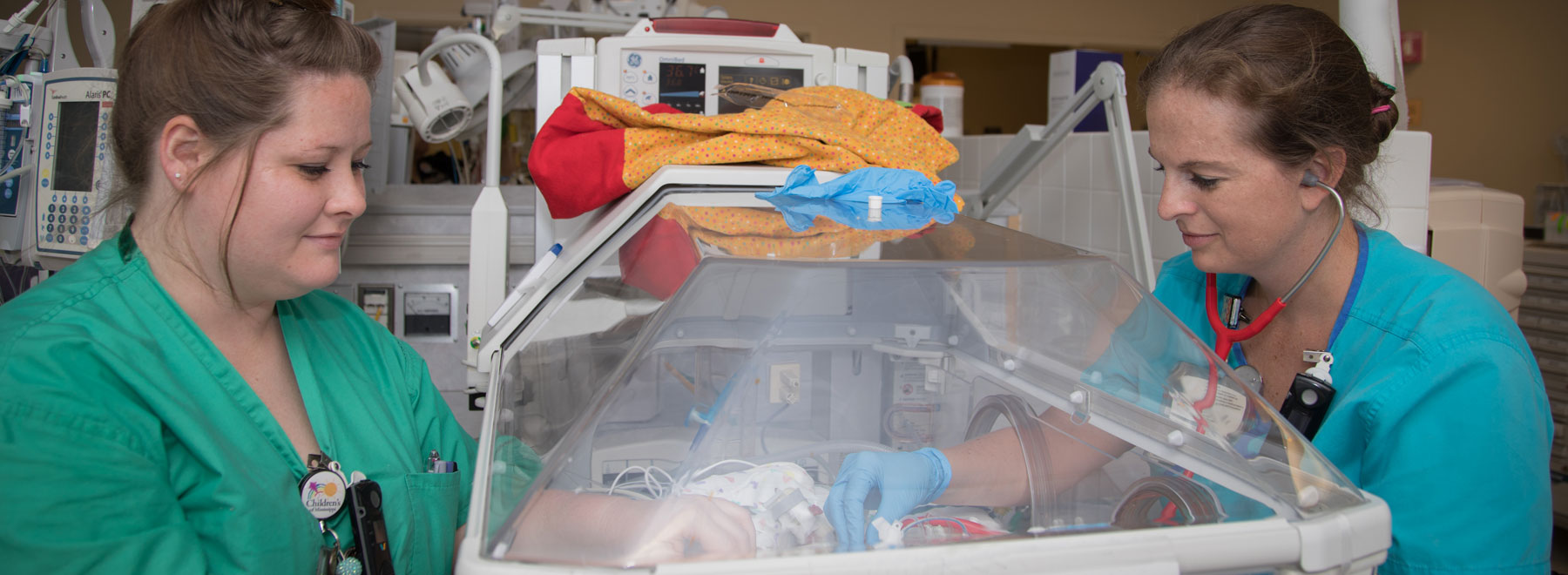Researchers seq-ing for answers in the genome
Even the littlest human has three billion base pairs in their genome, a blueprint for their growing bodies. Sometimes the blueprint has missing parts or an error, like having a wall where a door is supposed to be.
For children born with medical issues, sometimes the reason is in their genome. For their families, having an answer to the question “Why?’ can help them prepare for what’s next.
The University of Mississippi Medical Center is part of a study that will help find answers for these families and help health care providers communicate those answers.
 SouthSeq is a multi-center study to discover more about how genetics affects health, to develop new approaches to communicate genetic information and to expand access to genomic medicine. The four-year study plans to collect blood from 1,500 neonatal intensive care unit patients, including 500 at UMMC, with symptoms suggestive of a genetic disorder. Researchers will then perform whole genome sequencing to identify gene variants that may contribute to the conditions.
SouthSeq is a multi-center study to discover more about how genetics affects health, to develop new approaches to communicate genetic information and to expand access to genomic medicine. The four-year study plans to collect blood from 1,500 neonatal intensive care unit patients, including 500 at UMMC, with symptoms suggestive of a genetic disorder. Researchers will then perform whole genome sequencing to identify gene variants that may contribute to the conditions.
UMMC has enrolled 10 participants since July, said Dr. Renate Savich, professor of pediatrics and chief of neonatology and newborn medicine.
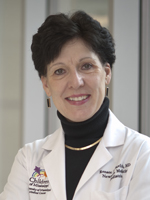
“This is the first time UMMC has participated in a National Institutes of Health-funded study involving patients from its NICU,” said Savich, one of the site investigators for SouthSeq.
Led by the HudsonAlpha Institute for Biotechnology in Huntsville, Alabama, SouthSeq also includes the NICU at the University of Alabama-Birmingham and Woman’s Hospital in Baton Rouge. A fourth site, Children’s Hospital in New Orleans, plans to join the study later.
“Most sequencing studies have included primarily white and European-descent patients. Minorities are vastly underrepresented,” Savich said. That makes generalizing findings for these populations more difficult. Bringing studies to hospitals like UMMC that serve more diverse populations helps genetic medicine benefit more people.
According to the Mississippi State Department of Health, 6,435 children, about one in 44, were born in the state with at least one known birth defect between 2008 and 2014. Some of these have well-understood environmental or genetic causes, such as spina bifida or cystic fibrosis. SouthSeq is for infants that don’t fall into these categories.
“Most babies with a congenital abnormality don’t receive a diagnosis. However, physicians may suspect they are genetic in origin,” Savich said. For example, an infant might have multiple co-occurring issues, such as a cleft palate, a hearing impairment or a congenital heart defect. Furthermore, there may be developmental challenges that become apparent later in life.
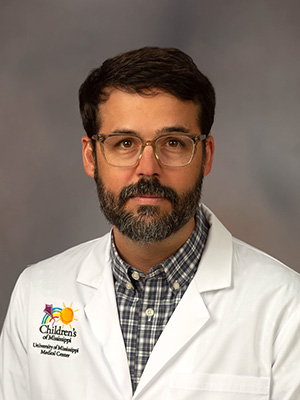
“There are a lot a questions we don’t have answers for, and we think many of these answers are written in the genes,” said Dr. Brian Kirmse, associate professor of pediatrics and study investigator.
While SouthSeq may help some families find a diagnosis for their child’s condition, the study does not offer an interventional treatment. Instead, its goal is to give families information that can help them make short- and long-term care decisions.
From an emotional standpoint, “there’s a lot to take in when your child is in the NICU,” said Kirmse, a medical geneticist. “When you layer on the possibility of an inherited disease, that’s another challenge. Different parents have different levels of scientific and genetic literacy, and people don’t always know or understand what this means.”
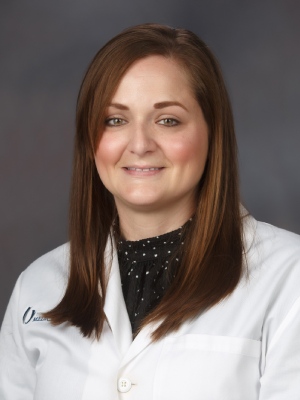
In these cases, genetics counselors like UMMC’s Laura Hendon can help families navigate their diagnoses.
“Genetic counselors help patients and physicians understand and interpret findings,” Hendon said. “They also make sure patients connect with the correct physicians for care. For example, if they have a heart condition, we help them find a cardiologist.”
However, “there’s a shortage of genetics professionals in United States,” especially in rural and underserved areas, she said.
Later on, SouthSeq plans to test a web-based tool to help non-specialist health-care providers deliver results and compare the patient outcomes to those who receive traditional genetics counseling.
“We want to learn if we can use this system to train non-genetics professionals like neonatologists and family physicians to counsel families,” Savich said.
Twenty years ago, SouthSeq would have been impossible. That was before the advent and advancement of whole genome sequencing, which can map all of a person’s genes.
“Whole genome sequencing is still expensive,” Savich said, although the price has dropped substantially. “Results used to take several months come back. Now, they can come back in several weeks.”
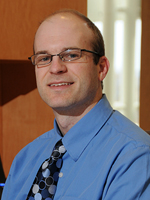
Savich expects the first participants to get genetic test results back this fall, after they’ve been sequenced at HudsonAlpha. Dr. Greg Cooper is the principal investigator on SouthSeq and a faculty investigator at HudsonAlpha.
“Whole genome sequencing is on the same order of magnitude as an MRI,” in terms of clinical relevance, complexity and availability, Cooper said. "It isn't always necessary to make a diagnosis, but in terms of rare diseases that are genetic in nature, it can be very beneficial. A molecular diagnosis from genomic sequencing may lead to different treatment strategies or access to new therapeutics for these patients," he added.
That’s why the final goal of the study is to promote access to clinical sequencing technologies. In the past, people in Mississippi have limited access to genome-based studies and medicine, Kirmse said, but SouthSeq can help change that.
“It’s important to have this study at UMMC,” he said. “I’m happy that we are able to research genomics in this pediatric and geographic population.”
“Our goal is to become a premier center for pediatrics and neonatology,” Savich said. “We’re excited to have this study and help Mississippi families get the best care available.”



